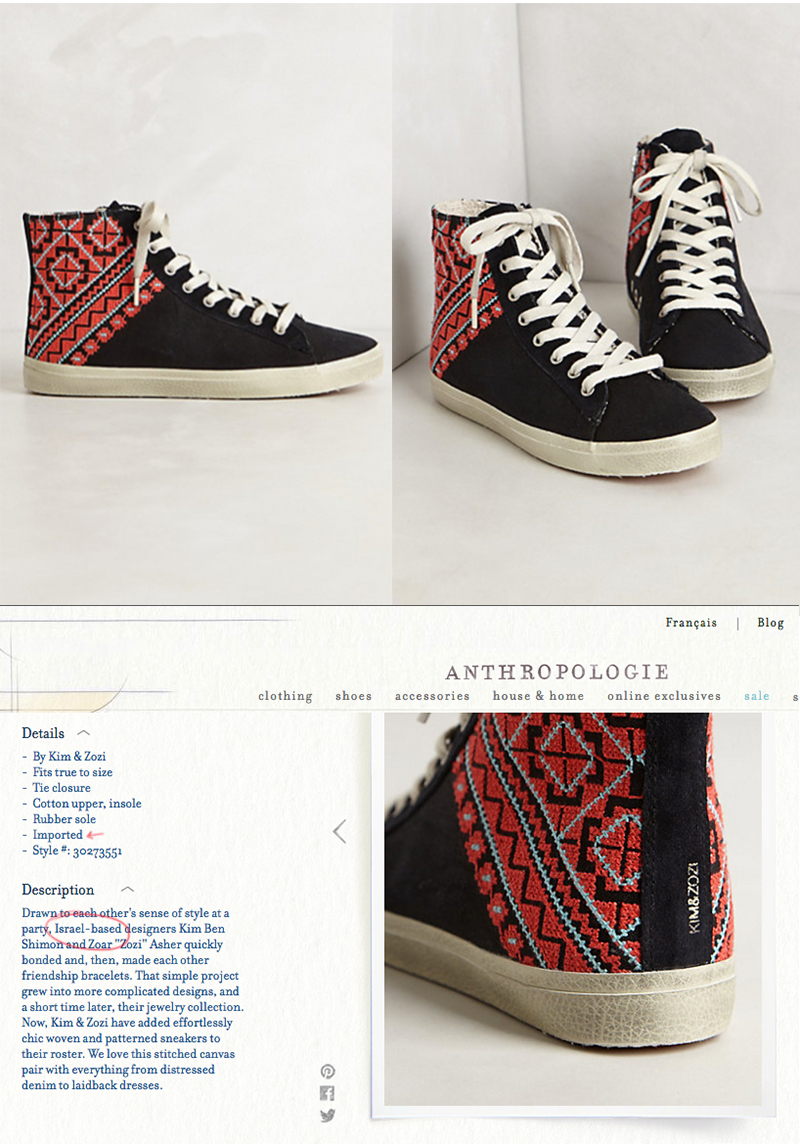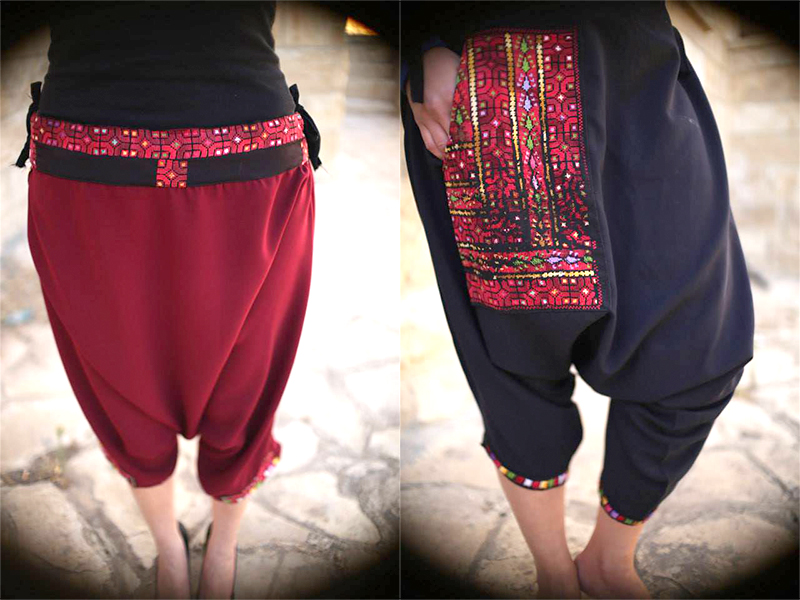an interesting find
African [Banjul] Charter on Human and Peoples’ Rights, adopted June 27, 1981, OAU Doc. CAB/LEG/67/3 rev. 5, 21 I.L.M. 58 (1982), entered into force Oct. 21, 1986: [excerpts] . . .
Preamble
The African States members of the Organization of African Unity, parties to the present convention entitled “African Charter on Human and Peoples’ Rights”,
Recalling Decision 115 (XVI) of the Assembly of Heads of State and Government at its Sixteenth Ordinary Session held in Monrovia, Liberia, from 17 to 20 July 1979 on the preparation of a “preliminary draft on an African Charter on Human and Peoples’ Rights providing inter alia for the establishment of bodies to promote and protect human and peoples’ rights”;
Considering the Charter of the Organization of African Unity, which stipulates that “freedom, equality, justice and dignity are essential objectives for the achievement of the legitimate aspirations of the African peoples”;
Reaffirming the pledge they solemnly made in Article 2 of the said Charter to eradicate all forms of colonialism from Africa, to coordinate and intensify their cooperation and efforts to achieve a better life for the peoples of Africa and to promote international cooperation having due regard to the Charter of the United Nations and the Universal Declaration of Human Rights;
Taking into consideration the virtues of their historical tradition and the values of African civilization which should inspire and characterize their reflection on the concept of human and peoples’ rights;
Recognizing on the one hand, that fundamental human rights stem from the attributes of human beings which justifies their national and international protection and on the other hand that the reality and respect of peoples rights should necessarily guarantee human rights;
Considering that the enjoyment of rights and freedoms also implies the performance of duties on the part of everyone;
Convinced that it is henceforth essential to pay a particular attention to the right to development and that civil and political rights cannot be dissociated from economic, social and cultural rights in their conception as well as universality and that the satisfaction of economic, social and cultural rights ia a guarantee for the enjoyment of civil and political rights;
Conscious of their duty to achieve the total liberation of Africa, the peoples of which are still struggling for their dignity and genuine independence, and undertaking to eliminate colonialism, neo-colonialism, apartheid, zionism and to dismantle aggressive foreign military bases and all forms of discrimination, particularly those based on race, ethnic group, color, sex. language, religion or political opinions;
Reaffirming their adherence to the principles of human and peoples’ rights and freedoms contained in the declarations, conventions and other instrument adopted by the Organization of African Unity, the Movement of Non-Aligned Countries and the United Nations;
Firmly convinced of their duty to promote and protect human and people’ rights and freedoms taking into account the importance traditionally attached to these rights and freedoms in Africa;
Have agreed as follows:
Part I: Rights and Duties
Chapter I — Human and Peoples’ Rights
Article 1
The Member States of the Organization of African Unity parties to the present Charter shall recognize the rights, duties and freedoms enshrined in this Chapter and shall undertake to adopt legislative or other measures to give effect to them.
Article 2
Every individual shall be entitled to the enjoyment of the rights and freedoms recognized and guaranteed in the present Charter without distinction of any kind such as race, ethnic group, color, sex, language, religion, political or any other opinion, national and social origin, fortune, birth or other status.
Article 3
1. Every individual shall be equal before the law. 2. Every individual shall be entitled to equal protection of the law.
Article 4
Human beings are inviolable. Every human being shall be entitled to respect for his life and the integrity of his person. No one may be arbitrarily deprived of this right.
Article 5
Every individual shall have the right to the respect of the dignity inherent in a human being and to the recognition of his legal status. All forms of exploitation and degradation of man particularly slavery, slave trade, torture, cruel, inhuman or degrading punishment and treatment shall be prohibited.
Article 6
Every individual shall have the right to liberty and to the security of his person. No one may be deprived of his freedom except for reasons and conditions previously laid down by law. In particular, no one may be arbitrarily arrested or detained.
Article 7
1. Every individual shall have the right to have his cause heard. This comprises: (a) the right to an appeal to competent national organs against acts of violating his fundamental rights as recognized and guaranteed by conventions, laws, regulations and customs in force; (b) the right to be presumed innocent until proved guilty by a competent court or tribunal; (c) the right to defence, including the right to be defended by counsel of his choice; (d) the right to be tried within a reasonable time by an impartial court or tribunal. 2. No one may be condemned for an act or omission which did not constitute a legally punishable offence at the time it was committed. No penalty may be inflicted for an offence for which no provision was made at the time it was committed. Punishment is personal and can be imposed only on the offender.
Article 8
Freedom of conscience, the profession and free practice of religion shall be guaranteed. No one may, subject to law and order, be submitted to measures restricting the exercise of these freedoms.
Article 9
1. Every individual shall have the right to receive information. 2. Every individual shall have the right to express and disseminate his opinions within the law.
Article 10
1. Every individual shall have the right to free association provided that he abides by the law. 2. Subject to the obligation of solidarity provided for in 29 no one may be compelled to join an association.
Article 11
Every individual shall have the right to assemble freely with others. The exercise of this right shall be subject only to necessary restrictions provided for by law in particular those enacted in the interest of national security, the safety, health, ethics and rights and freedoms of others.
Article 12
1. Every individual shall have the right to freedom of movement and residence within the borders of a State provided he abides by the law. 2. Every individual shall have the right to leave any country including his own, and to return to his country. This right may only be subject to restrictions, provided for by law for the protection of national security, law and order, public health or morality. 3. Every individual shall have the right, when persecuted, to seek and obtain asylum in other countries in accordance with laws of those countries and international conventions. 4. A non-national legally admitted in a territory of a State Party to the present Charter, may only be expelled from it by virtue of a decision taken in accordance with the law. 5. The mass expulsion of non-nationals shall be prohibited. Mass expulsion shall be that which is aimed at national, racial, ethnic or religious groups.
Article 13
1. Every citizen shall have the right to participate freely in the government of his country, either directly or through freely chosen representatives in accordance with the provisions of the law. 2. Every citizen shall have the right of equal access to the public service of his country. 3. Every individual shall have the right of access to public property and services in strict equality of all persons before the law.
Article 14
The right to property shall be guaranteed. It may only be encroached upon in the interest of public need or in the general interest of the community and in accordance with the provisions of appropriate laws.
Article 15
Every individual shall have the right to work under equitable and satisfactory conditions, and shall receive equal pay for equal work.
Article 16
1. Every individual shall have the right to enjoy the best attainable state of physical and mental health. 2. States Parties to the present Charter shall take the necessary measures to protect the health of their people and to ensure that they receive medical attention when they are sick.
Article 17
1. Every individual shall have the right to education. 2. Every individual may freely, take part in the cultural life of his community. 3. The promotion and protection of morals and traditional values recognized by the community shall be the duty of the State.
Article 18
1. The family shall be the natural unit and basis of society. It shall be protected by the State which shall take care of its physical health and moral.
2. The State shall have the duty to assist the family which is the custodian of morals and traditional values recognized by the community.
3. The State shall ensure the elimination of every discrimination against women and also ensure the protection of the rights of the woman and the child as stipulated in international declarations and conventions.
4. The aged and the disabled shall also have the right to special measures of protection in keeping with their physical or moral needs.
Article 19
All peoples shall be equal; they shall enjoy the same respect and shall have the same rights. Nothing shall justify the domination of a people by another.
Article 20
1. All peoples shall have the right to existence. They shall have the unquestionable and inalienable right to self- determination. They shall freely determine their political status and shall pursue their economic and social development according to the policy they have freely chosen.
2. Colonized or oppressed peoples shall have the right to free themselves from the bonds of domination by resorting to any means recognized by the international community.
3. All peoples shall have the right to the assistance of the States parties to the present Charter in their liberation struggle against foreign domination, be it political, economic or cultural.
Article 21
1. All peoples shall freely dispose of their wealth and natural resources. This right shall be exercised in the exclusive interest of the people. In no case shall a people be deprived of it. 2. In case of spoliation the dispossessed people shall have the right to the lawful recovery of its property as well as to an adequate compensation. 3. The free disposal of wealth and natural resources shall be exercised without prejudice to the obligation of promoting international economic cooperation based on mutual respect, equitable exchange and the principles of international law. 4. States parties to the present Charter shall individually and collectively exercise the right to free disposal of their wealth and natural resources with a view to strengthening African unity and solidarity. 5. States parties to the present Charter shall undertake to eliminate all forms of foreign economic exploitation particularly that practiced by international monopolies so as to enable their peoples to fully benefit from the advantages derived from their national resources.
Article 22
1. All peoples shall have the right to their economic, social and cultural development with due regard to their freedom and identity and in the equal enjoyment of the common heritage of mankind. 2. States shall have the duty, individually or collectively, to ensure the exercise of the right to development.
Article 23
1. All peoples shall have the right to national and international peace and security. The principles of solidarity and friendly relations implicitly affirmed by the Charter of the United Nations and reaffirmed by that of the Organization of African Unity shall govern relations between States. 2. For the purpose of strengthening peace, solidarity and friendly relations, States parties to the present Charter shall ensure that: (a) any individual enjoying the right of asylum under 12 of the present Charter shall not engage in subversive activities against his country of origin or any other State party to the present Charter; (b) their territories shall not be used as bases for subversive or terrorist activities against the people of any other State party to the present Charter.
Article 24
All peoples shall have the right to a general satisfactory environment favorable to their development.
Article 25
States parties to the present Charter shall have the duty to promote and ensure through teaching, education and publication, the respect of the rights and freedoms contained in the present Charter and to see to it that these freedoms and rights as well as corresponding obligations and duties are understood.
Article 26
States parties to the present Charter shall have the duty to guarantee the independence of the Courts and shall allow the establishment and improvement of appropriate national institutions entrusted with the promotion and protection of the rights and freedoms guaranteed by the present Charter.
Chapter II — Duties
Article 27
1. Every individual shall have duties towards his family and society, the State and other legally recognized communities and the international community. 2. The rights and freedoms of each individual shall be exercised with due regard to the rights of others, collective security, morality and common interest.
Article 28
Every individual shall have the duty to respect and consider his fellow beings without discrimination, and to maintain relations aimed at promoting, safeguarding and reinforcing mutual respect and tolerance.
Article 29
The individual shall also have the duty: 1. to preserve the harmonious development of the family and to work for the cohesion and respect of the family; to respect his parents at all times, to maintain them in case of need; 2. To serve his national community by placing his physical and intellectual abilities at its service; 3. Not to compromise the security of the State whose national or resident he is; 4. To preserve and strengthen social and national solidarity, particularly when the latter is threatened; 5. To preserve and strengthen the national independence and the territorial integrity of his country and to contribute to its defence in accordance with the law; 6. To work to the best of his abilities and competence, and to pay taxes imposed by law in the interest of the society; 7. to preserve and strengthen positive African cultural values in his relations with other members of the society, in the spirit of tolerance, dialogue and consultation and, in general, to contribute to the promotion of the moral well being of society; 8. To contribute to the best of his abilities, at all times and at all levels, to the promotion and achievement of African unity.
Part II: Measures of Safeguard
Chapter I — Establishment and Organization of the African Commission on Human and Peoples’ Rights
Article 30
An African Commission on Human and Peoples’ Rights, hereinafter called “the Commission”, shall be established within the Organization of African Unity to promote human and peoples’ rights and ensure their protection in Africa.
Article 31
1. The Commission shall consist of eleven members chosen from amongst African personalities of the highest reputation, known for their high morality, integrity, impartiality and competence in matters of human and peoples’ rights; particular consideration being given to persons having legal experience.
2. The members of the Commission shall serve in their personal capacity. . . .
Article 41
The Secretary-General of the Organization of African Unity shall appoint the Secretary of the Commission. He shall also provide the staff and services necessary for the effective discharge of the duties of the Commission. The Organization of African Unity shall bear the costs of the staff and services. . . .
Chapter II — Mandate of the Commission
Article 45
The functions of the Commission shall be:
1. To promote Human and Peoples’ Rights and in particular:
(a) to collect documents, undertake studies and researches on African problems in the field of human and peoples’ rights, organize seminars, symposia and conferences, disseminate information, encourage national and local institutions concerned with human and peoples’ rights, and should the case arise, give its views or make recommendations to Governments.
(b) to formulate and lay down, principles and rules aimed at solving legal problems relating to human and peoples’ rights and fundamental freedoms upon which African Governments may base their legislations.
(c) co-operate with other African and international institutions concerned with the promotion and protection of human and peoples’ rights.
2. Ensure the protection of human and peoples’ rights under conditions laid down by the present Charter.
3. Interpret all the provisions of the present Charter at the request of a State party, an institution of the OAU or an African Organization recognized by the OAU.
4. Perform any other tasks which may be entrusted to it by the Assembly of Heads of State and Government.
Chapter III — Procedure of the Commission
Article 46
The Commission may resort to any appropriate method of investigation; it may hear from the Secretary General of the Organization of African Unity or any other person capable of enlightening it.
Communication From States
Article 47
If a State party to the present Charter has good reasons to believe that another State party to this Charter has violated the provisions of the Charter, it may draw, by written communication, the attention of that State to the matter. This communication shall also be addressed to the Secretary General of the OAU and to the Chairman of the Commission. Within three months of the receipt of the communication, the State to which the communication is addressed shall give the enquiring State, written explanation or statement elucidating the matter. This should include as much as possible relevant information relating to the laws and rules of procedure applied and applicable, and the redress already given or course of action available.
Article 48
If within three months from the date on which the original communication is received by the State to which it is addressed, the issue is not settled to the satisfaction of the two States involved through bilateral negotiation or by any other peaceful procedure, either State shall have the right to submit the matter to the Commission through the Chairman and shall notify the other States involved.
Article 49
Notwithstanding the provisions of 47, if a State party to the present Charter considers that another State party has violated the provisions of the Charter, it may refer the matter directly to the Commission by addressing a communication to the Chairman, to the Secretary General of the Organization of African Unity and the State concerned.
Article 50
The Commission can only deal with a matter submitted to it after making sure that all local remedies, if they exist, have been exhausted, unless it is obvious to the Commission that the procedure of achieving these remedies would be unduly prolonged.
Article 51
1. The Commission may ask the States concerned to provide it with all relevant information.
2. When the Commission is considering the matter, States concerned may be represented before it and submit written or oral representation.
Article 52
After having obtained from the States concerned and from other sources all the information it deems necessary and after having tried all appropriate means to reach an amicable solution based on the respect of Human and Peoples’ Rights, the Commission shall prepare, within a reasonable period of time from the notification referred to in 48, a report stating the facts and its findings. This report shall be sent to the States concerned and communicated to the Assembly of Heads of State and Government.
Article 53
While transmitting its report, the Commission may make to the Assembly of Heads of State and Government such recommendations as it deems useful.
Article 54
The Commission shall submit to each ordinary Session of the Assembly of Heads of State and Government a report on its activities.
Other Communications
Article 55
1. Before each Session, the Secretary of the Commission shall make a list of the communications other than those of States parties to the present Charter and transmit them to the members of the Commission, who shall indicate which communications should be considered by the Commission.
2. A communication shall be considered by the Commission if a simple majority of its members so decide.
Article 56
Communications relating to human and peoples’ rights referred to in 55 received by the Commission, shall be considered if they:
1. Indicate their authors even if the latter request anonymity,
2. Are compatible with the Charter of the Organization of African Unity or with the present Charter,
3. Are not written in disparaging or insulting language directed against the State concerned and its institutions or to the Organization of African Unity,
4. Are not based exclusively on news discriminated through the mass media,
5. Are sent after exhausting local remedies, if any, unless it is obvious that this procedure is unduly prolonged,
6. Are submitted within a reasonable period from the time local remedies are exhausted or from the date the Commission is seized of the matter, and
7. Do not deal with cases which have been settled by these States involved in accordance with the principles of the Charter of the United Nations, or the Charter of the Organization of African Unity or the provisions of the present Charter.
Article 57
Prior to any substantive consideration, all communications shall be brought to the knowledge of the State concerned by the Chairman of the Commission.
Article 58
1. When it appears after deliberations of the Commission that one or more communications apparently relate to special cases which reveal the existence of a series of serious or massive violations of human and peoples’ rights, the Commission shall draw the attention of the Assembly of Heads of State and Government to these special cases.
2. The Assembly of Heads of State and Government may then request the Commission to undertake an in-depth study of these cases and make a factual report, accompanied by its findings and recommendations.
3. A case of emergency duly noticed by the Commission shall be submitted by the latter to the Chairman of the Assembly of Heads of State and Government who may request an in-depth study.
Article 59
1. All measures taken within the provisions of the present Chapter shall remain confidential until such a time as the Assembly of Heads of State and Government shall otherwise decide. . . .
2. The report on the activities of the Commission shall be published by its Chairman after it has been considered by the Assembly of Heads of State and Government.
Chapter IV — Applicable Principles
Article 60
The Commission shall draw inspiration from international law on human and peoples’ rights, particularly from the provisions of various African instruments on human and peoples’ rights, the Charter of the United Nations, the Charter of the Organization of African Unity, the Universal Declaration of Human Rights, other instruments adopted by the United Nations and by African countries in the field of human and peoples’ rights as well as from the provisions of various instruments adopted within the Specialized Agencies of the United Nations of which the parties to the present Charter are members.
Article 61
The Commission shall also take into consideration, as subsidiary measures to determine the principles of law, other general or special international conventions, laying down rules expressly recognized by member states of the Organization of African Unity, African practices consistent with international norms on human and people’s rights, customs generally accepted as law, general principles of law recognized by African states as well as legal precedents and doctrine.
Article 62
Each state party shall undertake to submit every two years, from the date the present Charter comes into force, a report on the legislative or other measures taken with a view to giving effect to the rights and freedoms recognized and guaranteed by the present Charter. . . .




